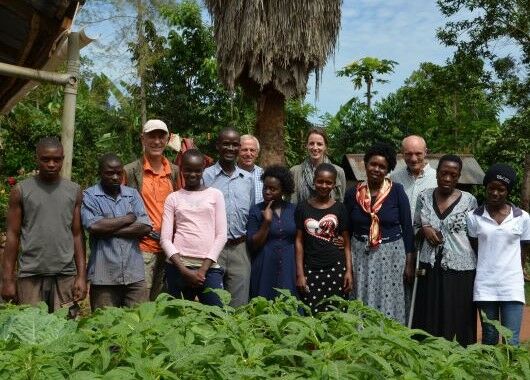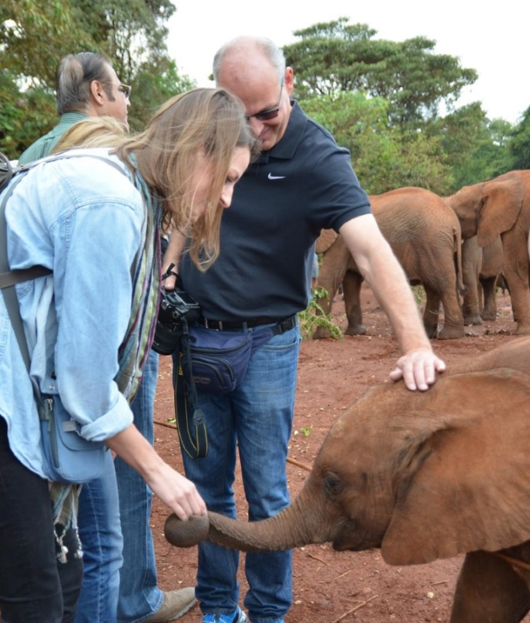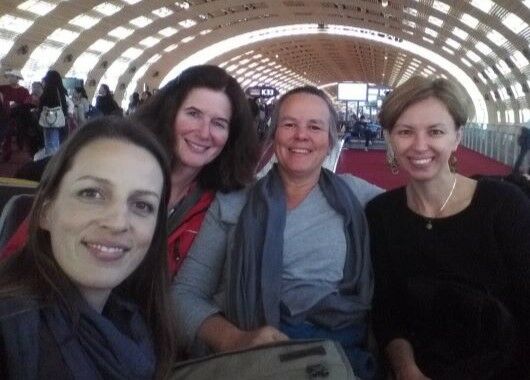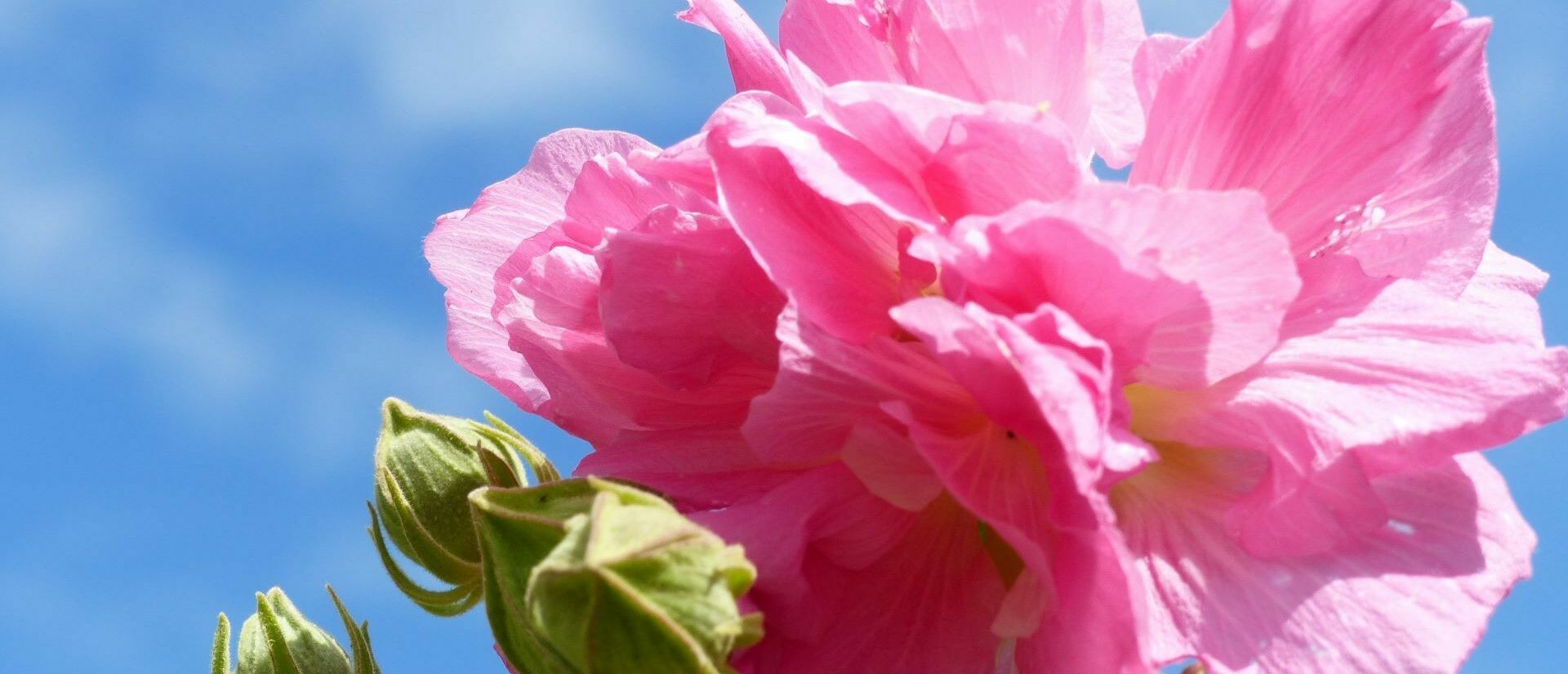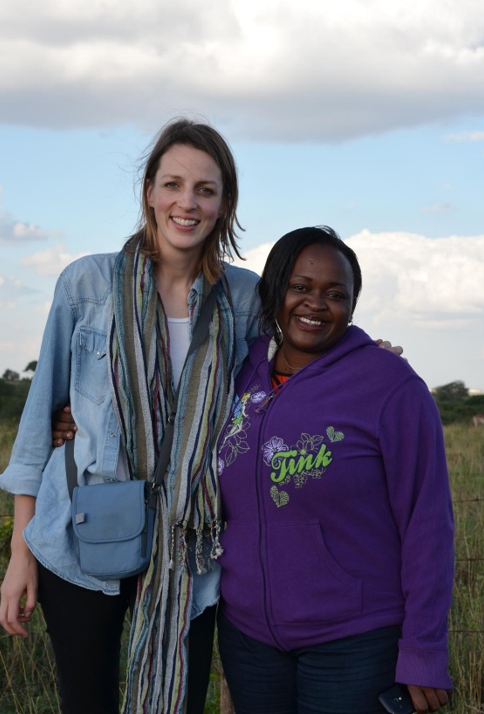Julia Maria Feldhausen - †15.12.2024
Julia startete ihre Arbeit für die Zukunftsstiftung Entwicklung im September 2015. Sie hatte sich auf die Stelle Projektbegleitung mit Schwerpunkt Lateinamerika beworben.
Julia brachte anderthalb Jahre Tätigkeit für die Welthungerhilfe in Kuba zu ökologischer Landwirtschaft mit und eine tiefe Leidenschaft für die Insel. Ein Punkt, an dem wir uns von Anfang an trafen. Als Julia die Arbeit aufnahm, stand sie feingliedrig, zart, sensibel, mitfühlend den Projektpartnern und Vorhaben gegenüber.
Dass sie auch kompromisslos geradlinig und zäh war, ahnte ich da noch nicht; doch die Tatsache, dass sie nach dem Studium der Lateinamerikawissenschaften länger in der Gastronomie arbeitete, weil sie den Job, den sie machen wollte, zunächst nicht bekommen hatte und sie sich deshalb nicht auf etwas anderes einlassen wollte, deutete diese Geradlinigkeit schon an.
2015 zog Julia nach Bochum und schmiss sich in die Arbeit. Damals war die Stiftung noch kleiner, es gab weniger Differenzierungen in der Projektbegleitung. Auch wenn ihr Schwerpunkt die Begleitung lateinamerikanischer Projektpartner war, gab es den Anspruch, dass sie alle Projektpartner kennen lernen sollte. So dehnte sich schon kurze Zeit später ihre Verantwortung auf Partner in Afrika aus.
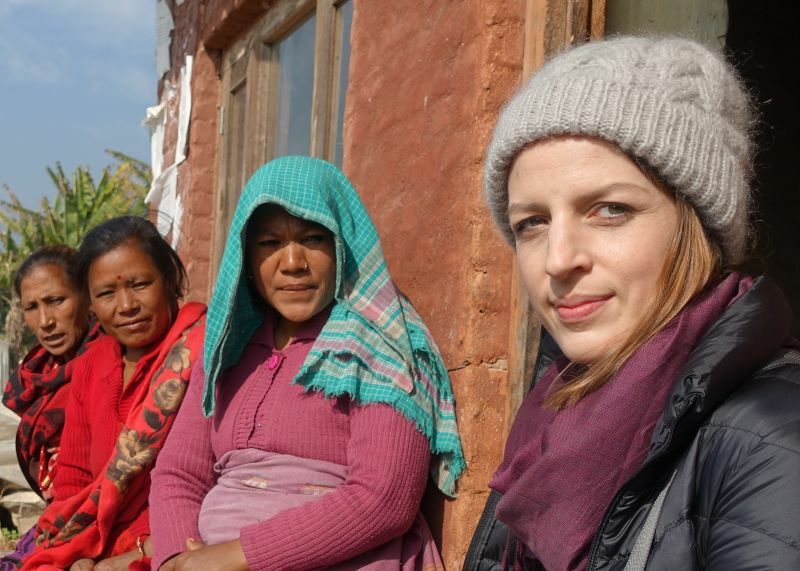
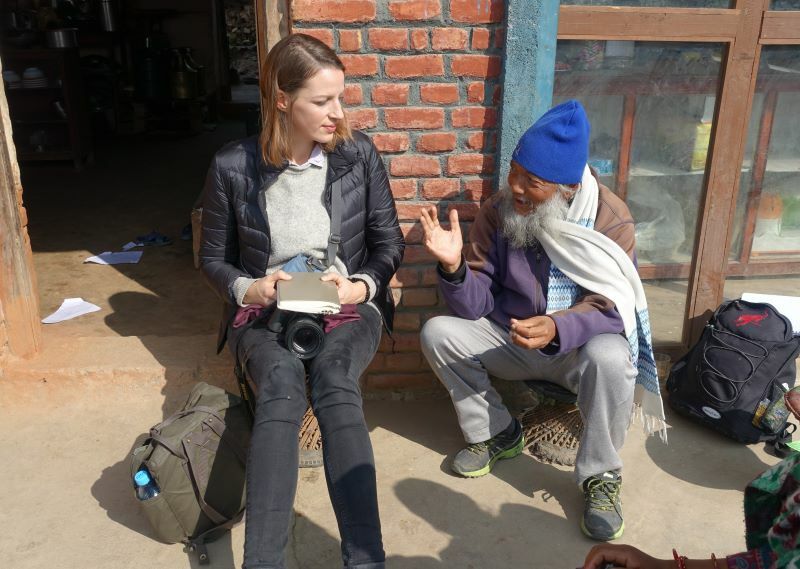
2018 reisten wir gemeinsam nach Peru. In den nördlichen Hochanden bekam Julia die Höhenkrankheit Soroche. Wir hatten ein Dorf auf rund 3.500 Metern an dem Tag besucht und waren abends durch Regen und Nebel langsam die Bergpisten heruntergeschlittert. Als wir aus dem Auto stiegen, ging es Julia schon sehr schlecht. Nachts klopfte sie an meine Tür. Ich war ziemlich ratlos, machte eine Wärmflasche, gab ihr Cocablätter, stopfte sie in mein Bett und rannte auf der Suche nach einem Arzt durch San Marcos.
Es gab keinen Arzt, nur eine Krankenstation mit einer Sauerstoffflasche. Mit einer Motorrikscha transportierte ich Julia zur Krankenstation, wo sie Sauerstoff bekam, derweil sich der Krankenpfleger über uns lustig machte. Es wäre ja kein Wunder, wenn so etwas passiere, was uns denn einfiele, die Berge rauf und runter zu kraxeln ohne an die Höhe gewöhnt zu sein.
Mühsam bekamen wir Julia nach Lima. Sie flog unverzüglich nach Hause und musste sich erstmal aufpäppeln. Die Reise nach Peru wirkte wie ein Beschleuniger von Entscheidungen: Julia zog wieder nach Köln und arbeitete nun teilweise von Zuhause aus.
In Kenia begleitete Julia Projekte im Süden des Landes. Viele Massai waren begeistert von ihr. Endlich mal eine Muzungu in ästhetischen Größen, langgliedrig und laufgewandt. Julias Kompetenz in der Projektbegleitung schätzten sie sehr.
2019 wurde Julia zur Mitarbeitendenvertretung im Stiftungsrat gewählt. Ab 2020 engagierte sie sich auch im Rahmen des Rechtsformwechsels hin zur selbstständigen Stiftung. Das war eine intensive und gar keine einfache Zeit. Julias Klarheit, unbedingte Nüchternheit und ihr Pragmatismus waren überaus hilfreich. Immer mehr trat hervor, dass ich mit ihr alle Belange der Stiftung diskutieren konnte.
Im Frühjahr 2020, vor dem Ausbruch der Coronakrise, ist Julia das letzte Mal gereist. Dieses Mal nach Nepal. Glücklicherweise war sie rechtzeitig wieder zurück.
Lange war ihr Wunsch, Mutter werden zu können. Ihre Schwangerschaft fiel in die Coronazeit. Mit dem fotographischen Können, das sie sonst auf den Projektreisen unter Beweis stellte, dokumentierte sie nun das Werden von Romy Matilda, ihrer geliebten Tochter.
Nach der Elternzeit übernahm Julia immer mehr koordinierende Aufgaben in der Projektbegleitung. Auch beriet sie die anderen Projektbegleitenden in Fragen von komplexen Vorhaben, die eine Förderung des Bundesministeriums für Wirtschaftliche Zusammenarbeit und Entwicklung erhielten.
Ab Januar 2024 beklagte sich Julia, dass alle Mitglieder der Familie dauernd krank seien. Romy bekam eine Lungenentzündung. Dann vermutete man bei ihr, Julia, eine Lungenentzündung. Darüber wurde es Februar, März. Sie hatte das Gefühl, dass sie einmal eine Pause brauchte. Sie dachte an vier Wochen; ich dachte an eine Kur und mindestens drei Monate. Inmitten dieser Gemengelage rief sie mich an und sagte: „Annette, ich habe ganz, ganz tief ins Klo gegriffen. Ich habe Krebs“. Ein Hirntumor, Tumore in der Lunge und Leber wurden diagnostiziert; später Metastasen in der Hüfte und in den Lymphknoten.
Die Krebsdiagnose änderte sich mit der Zeit, die Tumore reagierten teilweise auf Bestrahlung, nicht aber auf Chemo- und Immuntherapien. Die Therapien hatten extreme Nebenwirkungen.
Am 11.07. heiratete Julia ihren Mann Simon bei strahlendem Wetter in Köln. Der Antrag hatte sie unendlich glücklich gemacht. Simon sagte auf dem Umtrunk, sie seien in den letzten Monaten so liebevoll von so vielen Menschen begleitet worden, dass sie sich auf einer Welle von Zuneigung, Fürsorge und Liebe getragen fühlten. Etwas, was sie zuvor in dieser Intensität noch nie erlebt hätten.
Julia war unglaublich klar in dieser Zeit. Geradlinig. Sie hatte sich eine Trauerberaterin gesucht, die sie, ihren Mann Simon und ihre Tochter Romy Matilda begleitete. Mit Ruhe und Zeit nahm Julia ein Familienhörbuch auf, das sie Mitte Oktober fertig stellte.
Sie schätzte es, dass sie nur fünf Minuten vom Krankenhaus entfernt wohnten. So konnten Simon und Romy Julia immer besuchen. Auch wechselten sich alle Familienmitglieder in der ständigen Begleitung ab.
Letzte Woche Mittwoch ertrug Julia die Schmerzen nicht mehr. Sie sollte eine Morphinpumpe auf der Palliativstation erhalten. Simon hoffte, sie könnten noch Weihnachten miteinander feiern. Am Samstagmorgen teilten ihm die Ärzte mit, dass Julia das Wochenende wohl nicht mehr überstehen würde. Julia starb um fünf Uhr am Sonntagmorgen im Kreise ihrer Liebsten.
Julia fehlt als Mensch und sie fehlt in der Stiftung - ihre Haltung, ihre Expertise, ihr Humor, ihre nüchterne Klarheit, ihre Liebesfähigkeit.
Annette Massmann, 16.12.2024
